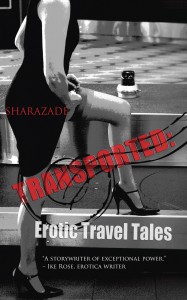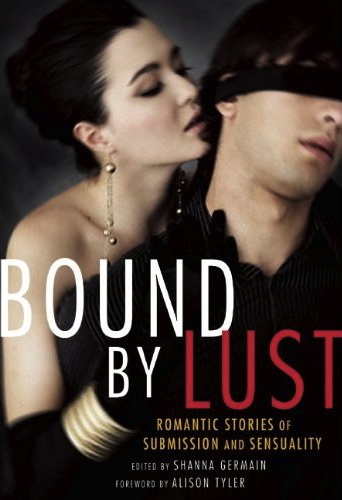A recent thread on a writer’s list, about being busy and handling all of one’s projects, started by asking, “Do you write one story or book at a time, finish it, and then begin another; or do you have several concurrent projects?”
As is the way with such threads, the responses addressed the question but also various side topics, including multitasking and whether or not such a thing is truly possible. One person who said it wasn’t observed, “You can’t write and do laundry at the same time.”
That remark struck me because my immediate reaction was, “But I do that all the time.” I don’t actually handle many household chores, but laundry is one of them, and it takes some time, especially the folding and sorting and putting away, and it is one of my prime opportunities for writing fiction. When I said so, though, the person was confused. It simply wasn’t possible, she said. If you are picking up a shirt and folding it, you are not holding a pencil and moving it across paper, nor are you typing.
Well, I’m not going to argue with that. But I am going to argue that there is far, far more to “writing” than typing. Now, different people write in different ways, and I certainly can agree that for some people, writing is mostly (I can’t quite say entirely, but I can say mostly) a matter of sitting down at the keyboard and doing it. However, for me, most of my writing is not this stage of transcription.
First, I need an idea. It needn’t be a fully formed idea; it could be a plot line (or a piece of a plot line), it could be a compelling character, it could be an interesting setting, it could be a theme. Staring at a computer screen or a blank sheet of paper does not bring this idea to me. Ideas come when and where they will — but most often when I am doing something completely different. I could be talking to someone, or engaging in sport, or watching a movie, or listening to music, or wandering through a museum, or reading a call for submissions. Ideas are a bit like love, though, in that the harder you chase them, the faster they run; and it’s often best to simply live your life and wait for them to come and find you.
Once I have an idea, that idea must be expanded into a full story that includes a complete (or complete enough, if it’s a short story) plot, with characters, setting, and all that. That too is a mental stage, not a typing stage, and again, I carry out this planning while engaged in other things.
I also need language — each individual sentence. This, for me, is still a mental stage. I arrange words into sentences, and sentences into paragraphs, and I go back and change words and rearrange sentences all in my head. The shower is an excellent place to do this; I also do it while I’m walking, and of course while doing the laundry.
Now, I can’t do two mental things at the same time, or at least, not successfully. I can’t talk on the phone to a friend and revise a paragraph. I can’t be checking my Facebook, or singing a song, or answering email. It’s best if I’m not cooking dinner (best for the dinner, I mean, not for the writing). But a rote physical activity, like laundry, or weeding, I can certainly do while working on a paragraph or a page.
Once I have the story more or less written in my head, at that point I sit down with my laptop and type it out. Now, once it’s written, I still play with it; I’ll still go back and add sections and delete sentences and change words. I might show it to someone and revise it based on his or her comments. But really, the bulk of the work is done. From typing on, it’s more polishing than constructing.
Because I can’t possibly have a story unless I do all of the thinking — there simply wouldn’t be anything to type — I call this thinking “writing.”
Does it matter? I mean, does it matter if I call my thinking “writing”? Yes, I think it does, and here’s why. I don’t think I’m alone in this. Even if other writers do less of the writing in their heads, I’m pretty sure most writers do some planning in their heads.
The point of recognizing this is that you can then consciously plan this time, and you can respect this time.
For example, say you see a call for submissions with a due date a month away. Do you have a month in which you could write? Perhaps not, if you are looking only at typing time. But perhaps you do, if you are aware of how much of the work you can do even when you don’t have typing time.
The other side of that coin is someone who thinks perhaps that having a block of six hours in front of the computer is enough time to finish a certain amount of writing, and then feels frustrated when it isn’t — because the necessary groundwork wasn’t done. Without that idea-gathering, many writers stare at the screen and panic because they assume they must have “writer’s block” when the words don’t come.
I’ve seen writers beat themselves up over “not having done anything all week” because they don’t have a Word file or a printout; and yet, they have been writing, and furthermore, making progress. They don’t give themselves credit for the work because it’s mental.
For me, a turning point in how I view the creative process came when I took on a large editing project for a publisher that involved some significant re-writing. I negotiated an hourly rate for my work, and then the project manager said, “Don’t forget to charge us for the time you spend thinking.” Oh? Wow. Because if she hadn’t said that, no, I would not have billed for that. I would have spent hours on my own, solving problems and moving words and pages around in my head, and then billed for the time I spent sitting at the computer. Once someone offers you money for something, it must be “real work.” That, for me, was the moment when I accepted thinking as “real work,” and began to examine, and accept, the significance of this step in my writing.
Folks of a certain age (and nationality) might remember the snarky comment of US President Lyndon Johnson, who said of Congressman Gerald Ford that he was so dumb he couldn’t fart and chew gum at the same time (this remark made it to the popular press in the milder form of his not being able to walk down the street and chew gum at the same time). Clearly, not everyone can multitask, and some tasks go better together than others. I’m curious, though, about how others write. Do you consider planning a part of “writing”? How do you do your brainstorming and drafting — in your head? on paper? At what point do you move to the computer (or paper)? How well do you know (and respect) your own writing process?
Free image courtesy of graur razvan ionu.
Image: graur razvan ionut / FreeDigitalPhotos.net
* * * * *






